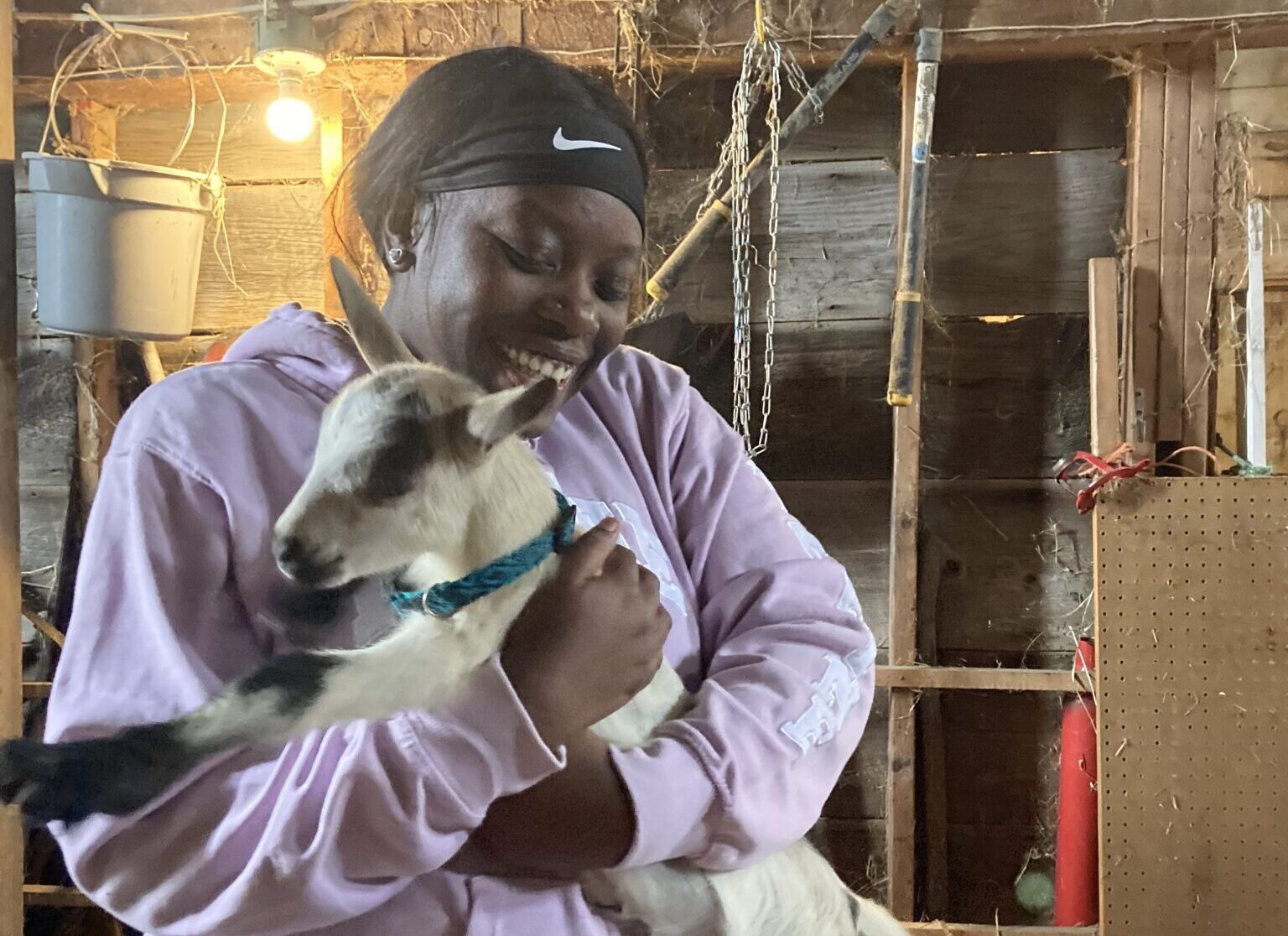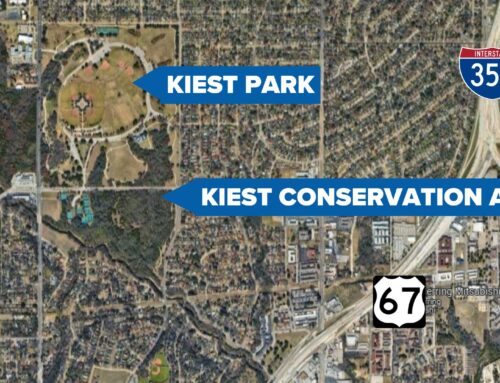The summer is a time for fun pool days, family barbecues, rest and relaxation, and of course, travel. For some high school seniors, traveling looks like a week in a completely different part of the country with a group of strangers. The American Exchange Project (AEP) offers a free, week-long domestic exchange program where students discover an American community very different from their own by staying with a host family, and the program has recently made its way to Oak Cliff.
AEP came to be after co-founder and CEO David McCullough III borrowed his mother’s car one day and drove 7000 miles across the country, spending two months in various parts of Texas, South Dakota, and Ohio in 2016.
What he found was a divided country where people didn’t know much beyond their scope of their neighborhood. This inspired a lifelong project driven by curiosity, adventure, and connection with the hopes of getting others in on it too. According to their website, “one of the best ways to learn about different people and places is to experience them.”
The social innovation initiative officially started as a research project in 2018 among McCullough and other senior, distinguished persons.
“We landed on this idea that there should be a national domestic exchange program here in America that operates the same as a study abroad program,” McCullough said.
As a non-profit, AEP is the first of its kind. All travel, lodging, meals, and activity costs are covered during the students’ stay.
The AEP experience allows students the opportunity to meet young people from around the country and develop new friendships. They will also explore new places and perspectives and learn more about what it means to be an American.
“Societies have long been divided along the lines of socioeconomic class and politics, and our disagreements in politics have become so vehement and angry that we’ve been drawn to not only hate each other, but to dehumanize people who are different from us,” McCullough said.
He thinks what divides communities are “the stances on hugely divisive and contentious and essential issues like affirmative action, abortion, guns, the place of faith and religion, or government.”
35% of Americans think the nation would be better off if people on the other side just died, McCullough said.
“Everything that we’ve done to live up to the first few words of the Constitution, ‘to create a more perfect union,’ and we are now saying that we should dissolve that because our opinions are so disparate from one another.”
AEP’s mission is to bridge the perception gap between different areas and communities in America where McCullough believes the true division lies geographically and culturally.
He said Americans tend to stay in their social cluster and choose to surround themselves with people who are ever more like them, perpetuating this problem of not knowing each other very well, stereotyping, and division and hatred and the cycle continues, he said.
“It’s a little unthinkable how little we know about one another and yet how many opinions we have about people who are different from us,” he said.
AEP operates by placing students in a learning environment and encouraging them to connect with other students their age.
They spend a week seeing the communities, circumstances and experiences that inform the belief systems in that area. “And in learning what it’s like to grow up in a different community, the students are putting together the tapestry of who they are, weaving in a few threads that are a small town in Texas or Manhattan or Oak Cliff,” McCullough said.
Now, AEP offers programming throughout 34 states and extended to Oak Cliff this past year.
The non-profit has grown to a staff of 80. Various directors and exchange managers are a majority of the working parts behind the program.
“When you’ve got a mission and an idea that excites people, folks want to come be a part of it,” McCullough said.
McCullough said that he received an overwhelming response of applications when he put out a job description for a program director. “I think for the people who want to work for us, they are feeling like they’re serving their country and that they’re fighting the greatest threat to our democracy,” he said.
Oak Cliff exchange manager Alissa Russell teaches grade 11 and 12 dual-credit math at Life High School. As an exchange manager, she coordinates students with their host families, plans itineraries and is the main point of contact for students going from and coming to Oak Cliff.
As a teacher at a Title 1 school, Russell knew AEP was something she wanted to be a part of.
According to her biography on the AEP website, Russell said she wants her students to experience life outside of their home state. “This will further develop their citizenship values to make them more productive adults,” she said.
Russell said that most of her students have never traveled outside of Oak Cliff let alone the state.
“A lot of students in Oak Cliff don’t have the financial resources or the availability to go out and explore other parts of the country on their own,” Russell said. “The American Exchange Project is bringing that kind of accessibility to places where students can appreciate and embrace other cultures.”
While AEP was created for students to experience new things, exchange managers find it beneficial as well. Exchange managers go through extensive training in order to prepare for all possible scenarios.
“[AEP] has developed through their management program and…I just appreciate the preparation that they’ve taken us through because I feel empowered that this will be a successful venture and can appreciate different cultures myself,” Russell said.
For students, McCullough said “this is a deeply impactful, transformative and wicked-fun one week trip.”
The itinerary is a flexible schedule that strikes a balance between the extraordinary, festive events and some of the tougher realities going on in town.
Students will attend events throughout the week that fall into one of four “buckets:” cultural immersion, community engagement, professional development, or volunteer and service-based learning.
In Oak Cliff, students check out various parts of the area from Glendale park to the Fort Worth StockYard, where students experience the typical ‘cowboy’ feel of Texas.
McCullough said during one of the first exchanges in Southwest Louisiana, students met with one of the world’s most famous Cajun musicians, Grammy Award winning Andre Michot from the Lost Bayou Ramblers.
“There was traditional Cajun food on his back porch, and he taught us how he builds his own accordions, how to play slide guitar and Zydeco dancing,” McCullough said.
Afterwards, the group hung out at Sonic “because that’s what kids from Louisiana do,” he said.
Both McCullough and Russell agreed that they wished they went through a program like this when they were high school seniors.
“[High school seniors] are going through a huge moment of transition in their lives. And they’re figuring out who they are, where they’re from, what that means, and they’re trying to figure out where they’re going next,” McCullough said. “It is a wonderful time for a kid to have this sort of experience out of their own community to pause and reflect and connect with people their age,” McCullough said.







